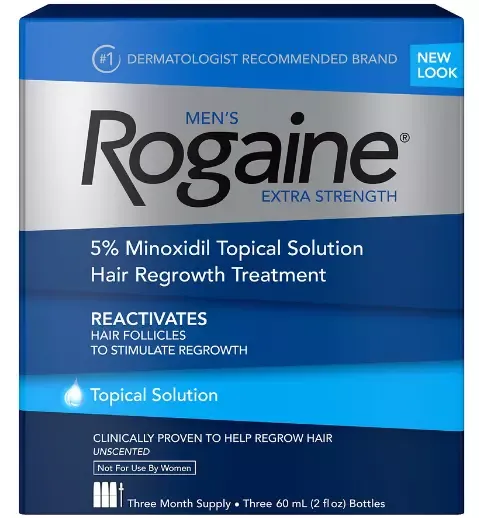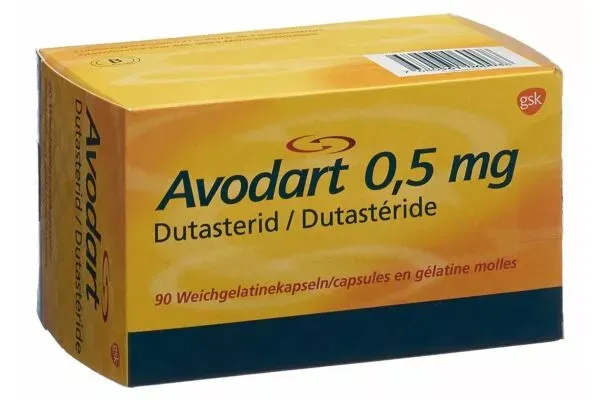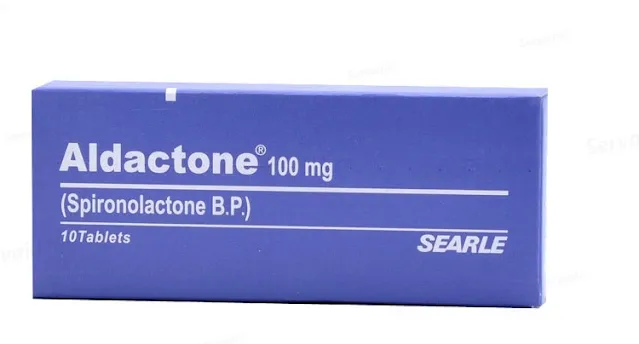The Top 10 Hair Loss Medicines That Actually Work

Hair loss can be a frustrating and distressing experience, but there are many medications available that can help. From topical treatments to oral medications, there are a variety of options to choose from. Here, we've compiled a list of the top 10 hair loss medicines to help you find the right solution for your needs.
Minoxidil (Rogaine)

Minoxidil is a popular choice for those seeking a hair loss medication that is easy to use and available without a prescription. It is applied directly to the scalp twice a day and can be used in conjunction with other hair loss treatments. While it may not work for everyone, studies have shown that it can be effective in promoting hair growth in those with early stages of hair loss. It is important to note that results may take several months to become noticeable, and continued use is necessary to maintain any hair growth achieved. As with any medication, it is important to discuss the use of minoxidil with a healthcare provider to ensure it is safe and appropriate for individual use.
Finasteride (Propecia)

Finasteride is a popular hair loss medicine for men who are experiencing male pattern baldness. It is taken orally and works by blocking the production of DHT, which is a hormone that can cause hair loss. While it may take several months to see results, studies have shown that finasteride can be effective in promoting hair growth and preventing further hair loss. However, it is important to note that finasteride is not recommended for use by women and may have side effects such as decreased libido and erectile dysfunction. It is important to consult with a healthcare provider before starting any hair loss medication.
Dutasteride (Avodart)

Dutasteride, or Avodart, is a medication that has been shown to be effective in treating male pattern baldness. It works by blocking the conversion of testosterone to DHT, which is a hormone that can contribute to hair loss. While it is similar to finasteride in its mechanism of action, dutasteride is more effective at blocking DHT and may lead to better hair growth results. However, it is important to note that dutasteride is only available by prescription and is not recommended for use by women. Additionally, some men may experience side effects such as decreased libido and erectile dysfunction. As with any medication, it is important to speak with a healthcare provider before starting dutasteride or any other hair loss medication.
Ketoconazole (Nizoral)

Ketoconazole is a popular choice for those looking for a hair loss medication that is both effective and affordable. It is available in both shampoo and cream forms, and can be used as a standalone treatment or in combination with other hair loss medications. While it is generally well-tolerated, some people may experience side effects such as itching, redness, or dryness of the scalp. It is important to follow the instructions provided by your healthcare provider or pharmacist, and to report any adverse reactions to them immediately. With proper use, ketoconazole can be a valuable tool in the fight against hair loss.
Spironolactone (Aldactone)

While spironolactone is not specifically approved by the FDA for hair loss treatment, many women have reported success in using it to combat hair loss. It is often prescribed in combination with other hair loss treatments, such as minoxidil or finasteride. Spironolactone is typically taken once or twice a day, and it may take several months to see results. It is important to note that spironolactone can have side effects, such as dizziness, nausea, and breast tenderness, so it is important to talk to a healthcare provider before using this medication. Additionally, it should not be used by pregnant women or women who are breastfeeding.
Frequently Asked Questions about Hair Loss effective Medicines (FAQs):
What are the top 10 hair loss medicines that actually work?
The top 10 hair loss medicines that actually work are minoxidil, finasteride, dutasteride, ketoconazole, spironolactone, corticosteroids, biotin, iron supplements, saw palmetto, and pumpkin seed oil.
How do these hair loss medicines work?
Hair loss medicines work by addressing the underlying causes of hair loss. For example, minoxidil increases blood flow to the scalp, finasteride and dutasteride inhibit the production of DHT (a hormone that contributes to hair loss), and ketoconazole reduces inflammation and fungal infections on the scalp.
Are these hair loss medicines safe to use?
These hair loss medicines are generally considered safe when used as directed. However, some people may experience side effects such as scalp irritation, itching, and dryness. It is important to talk to a doctor before starting any new hair loss treatment.
Do these hair loss medicines require a prescription?
Some of these hair loss medicines, such as finasteride and dutasteride, require a prescription from a doctor. Others, such as minoxidil and ketoconazole, can be purchased over-the-counter.
How long does it take to see results from these hair loss medicines?
The time it takes to see results from hair loss medicines can vary depending on the individual and the medication. Some people may see results within a few weeks, while others may need to use the medication for several months before noticing a difference.
Can these hair loss medicines be used by both men and women?
Yes, these hair loss medicines can be used by both men and women. However, some medications, such as finasteride, may not be suitable for women who are pregnant or planning to become pregnant.
Are there any natural alternatives to these hair loss medicines?
Yes, there are some natural alternatives to hair loss medicines, such as using essential oils, scalp massages, and dietary supplements. However, it is important to note that the effectiveness of these natural remedies has not been extensively studied.
Can hair loss medicines be used in conjunction with other treatments, such as hair transplants?
Yes, hair loss medicines can be used in conjunction with other treatments, such as hair transplants. In fact, using a hair loss medication before or after a hair transplant may help to improve the results.




